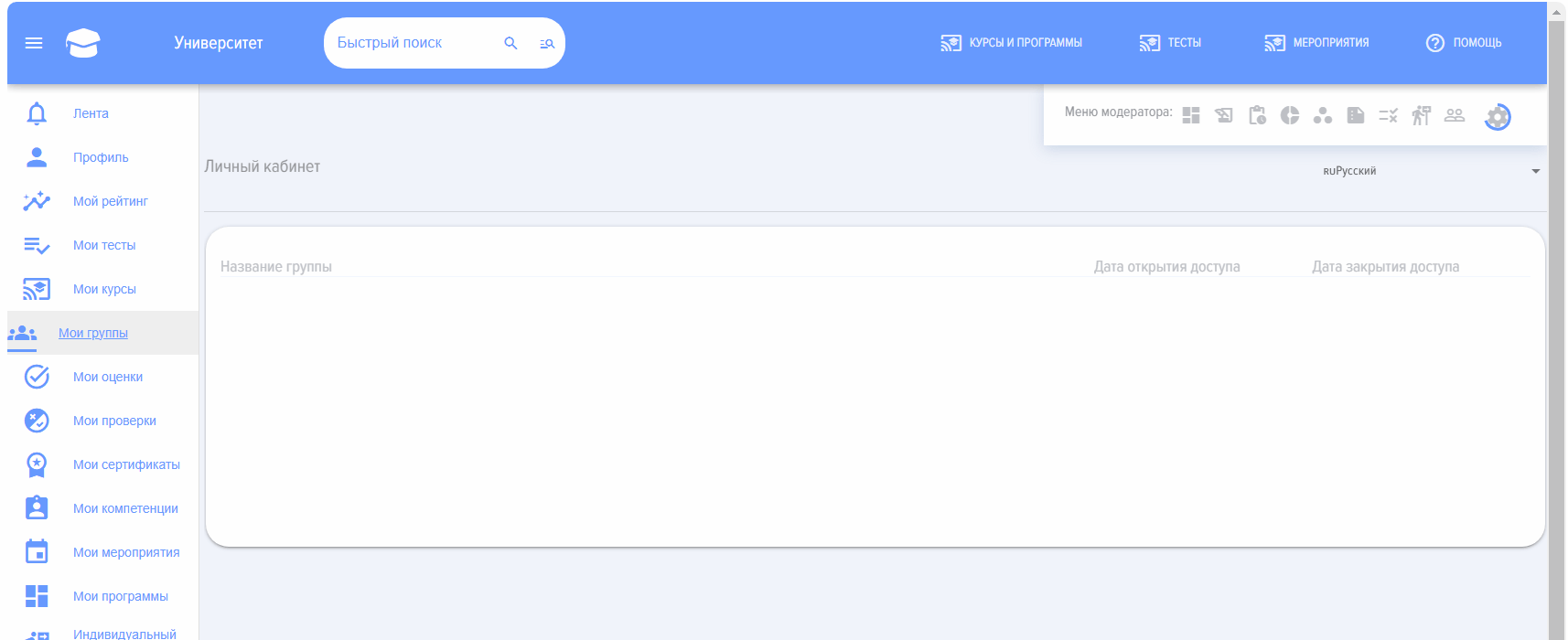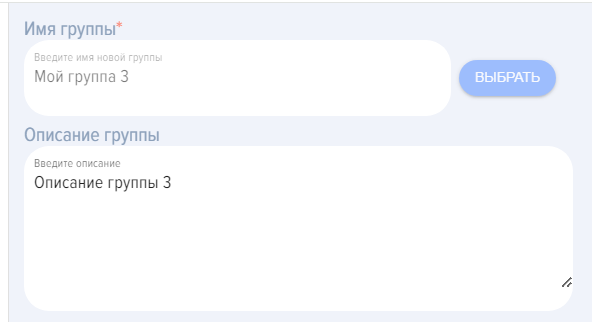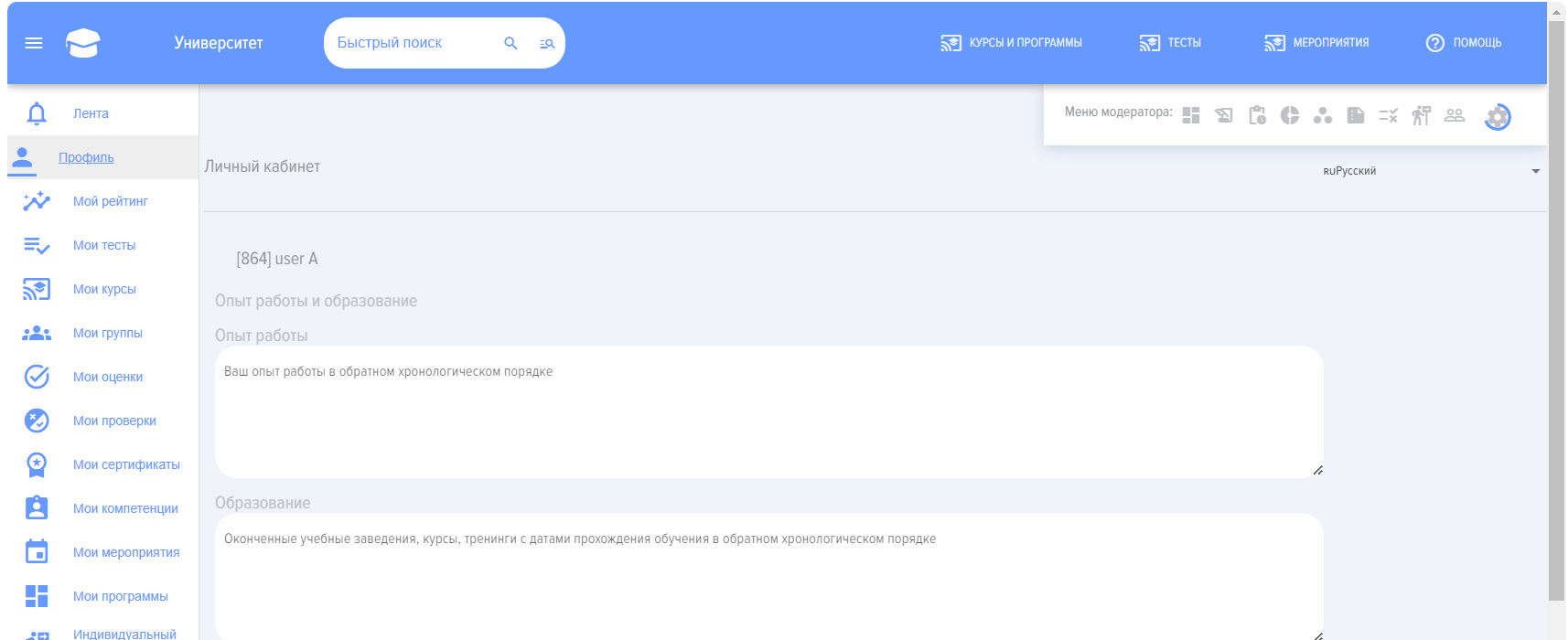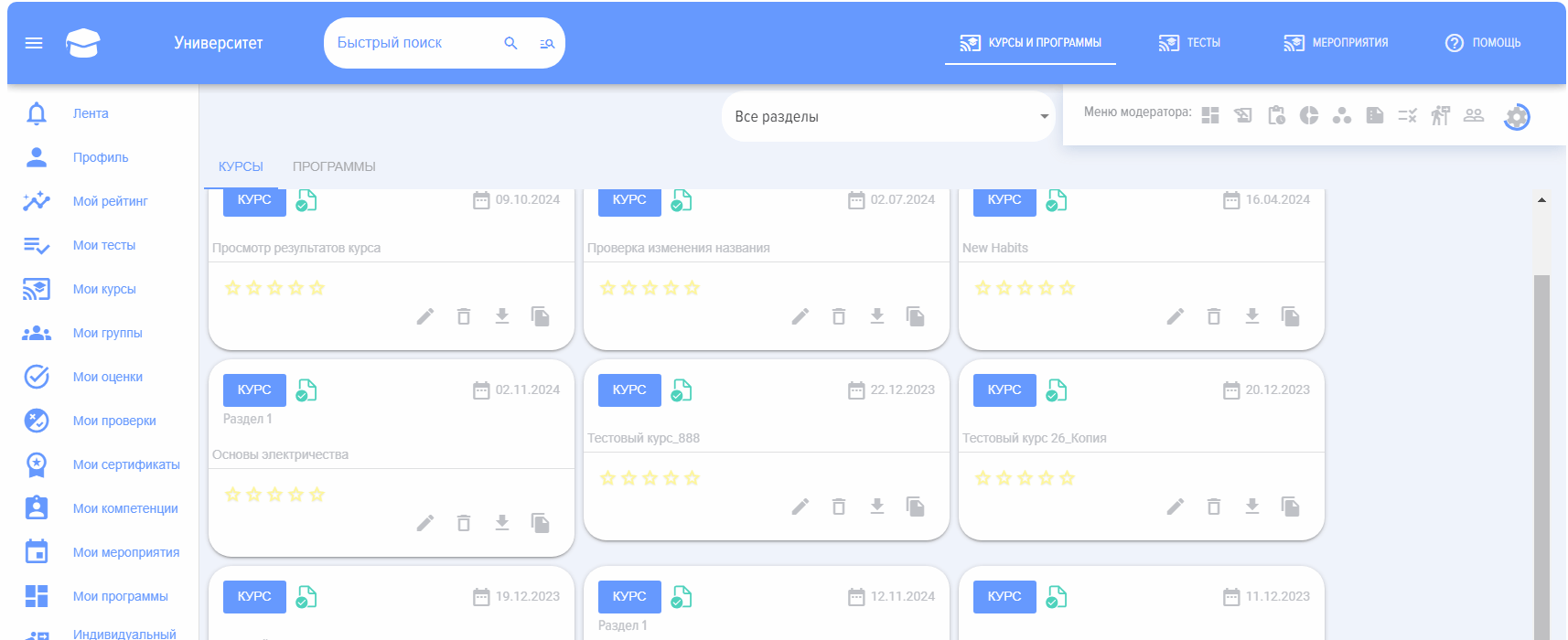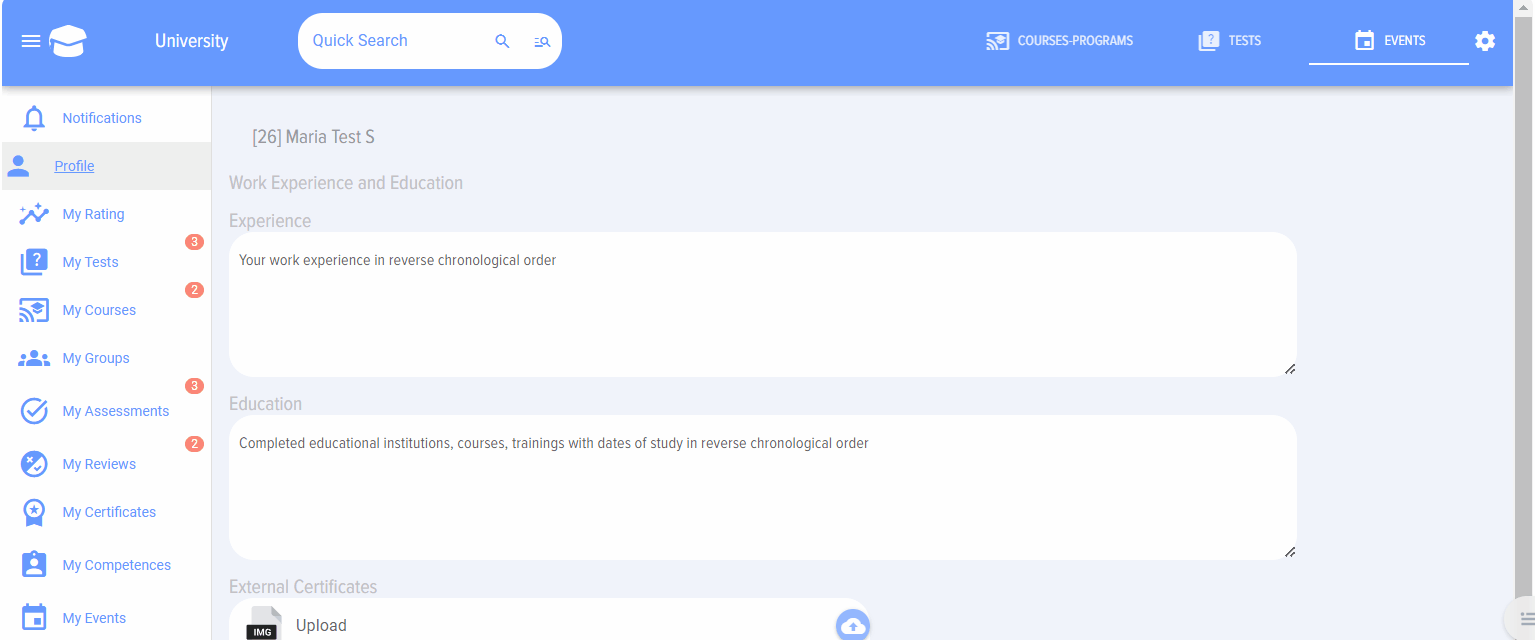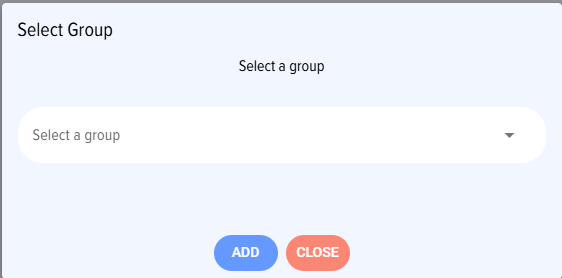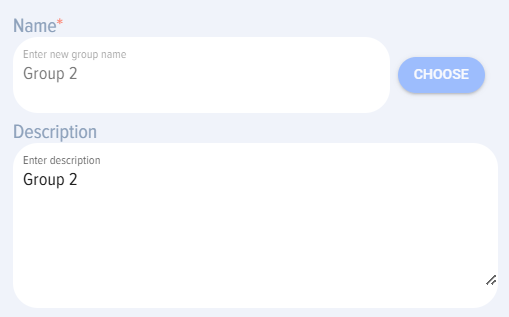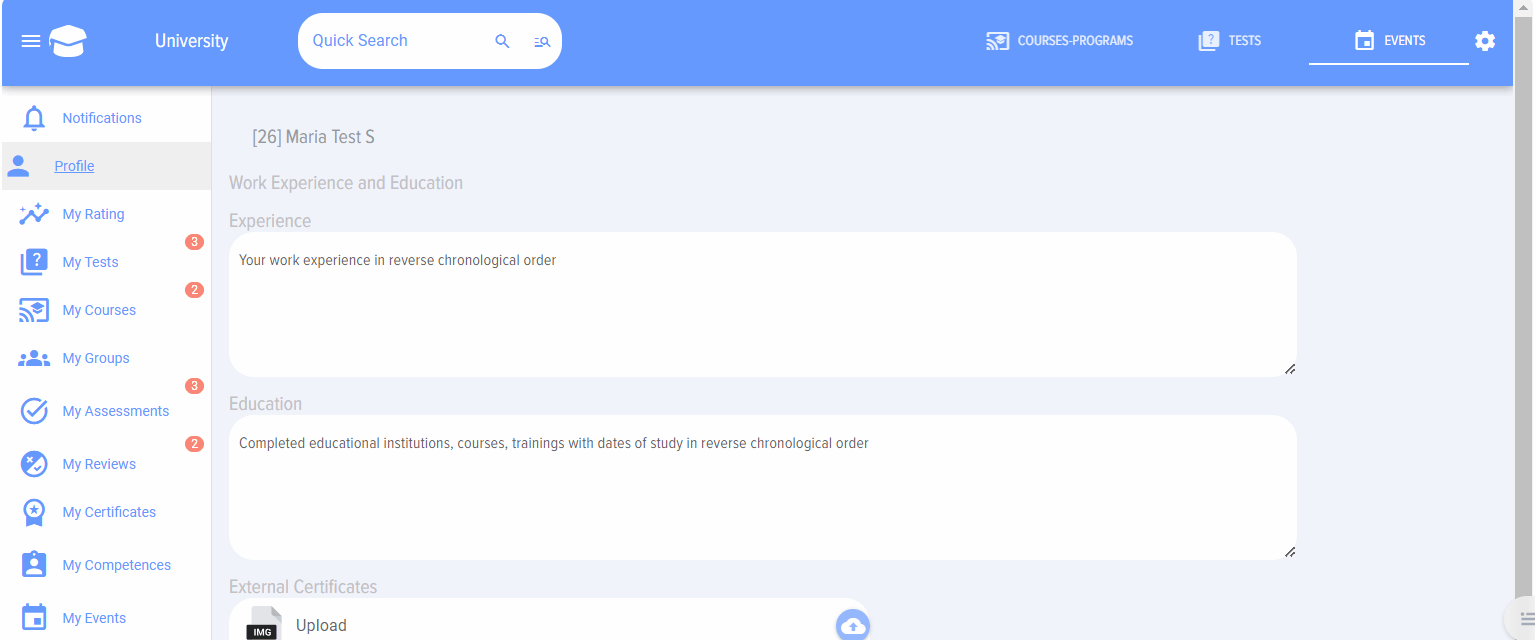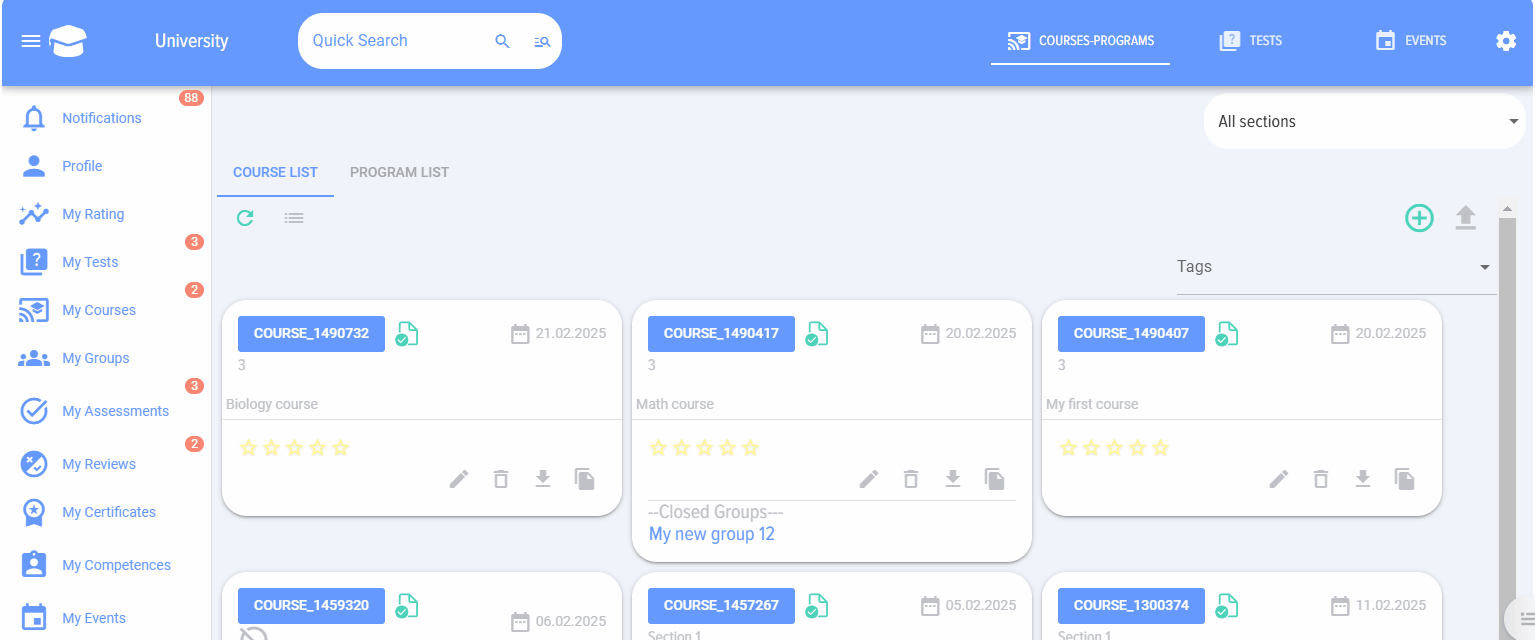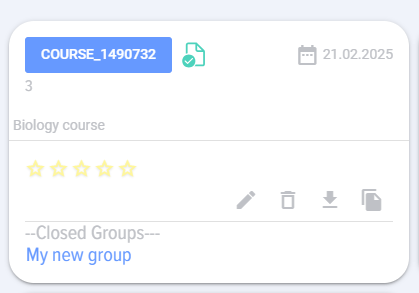Groups. For Bitrix24
Introduction
Training groups in the application are integrated with groups in Bitrix24.
Training groups are a tool to support and organize the learning process. Capabilities of the standard group functionality:
- Distribution (separation) of student streams;
- Organizing access to courses/tests for external users;
- Restricting access to courses/tests;
- Organizing inter-module work.
Creating groups
1. Creating groups from scratch
А) To create a group, go to Groups and click the plus icon 
B) Fill in the card: group name; group description; access start date; access end date; group participants; tests/courses, group joining method.
This is important. Depending on whether the moderator creating the group in the application has administrator rights on the Bitrix24 portal, there are two methods for adding users to the group (in the application):
- Add to group (Admin). Adding to the group by a user with administrator rights. Addition is performed automatically, without invitation.
- Invite to group. Performed by a moderator who does not have administrator rights on the Bitrix24 portal. In this case, an invitation to join the group will be sent to the user, and after the invitation is approved, the user will be added to the group.
2. Creating a group from an existing group in Bitrix
To select an existing group from Bitrix, click the Select button, choose a group from Bitrix, and click the Add button.
After adding the existing group, the Group Name and Group Description fields will be populated with values from the Bitrix group and will be unavailable for editing. The group membership will also correspond to the members of the group from Bitrix.
The list of participants will be exactly as it was in the Bitrix group.
IMPORTANT. It should be noted that if the group is connected by someone who is not an administrator of the Bitrix24 portal, then they must be a moderator or owner of that group. Only in this case will they be able to create a training group based on an existing one in Bitrix, as well as make changes to it.
For all employees added to the group, the group will appear in their Personal account under My groups. Clicking on the group will reveal the available tests/courses.
Closed Courses/Tests, Student Streams, External UsersClosed courses/tests, student streams, external users
Attention! Courses/tests added to groups are considered closed and are not displayed in the general course/test catalog. They must be accessed only from the Personal Account under the Groups tab.Attention! Courses/tests added to groups are considered closed and are not displayed in the general catalog of courses/tests. Accessing them must only be done from the Personal account under the Groups tab.
If a course and/or test is added to a training group, it is automatically closed for access to all employees except those added to that group.
Thus, you can regulate the closed nature of specific courses/tests if they are intended for a limited audience within your organization.
The card of a closed course looks like this:
Training groups allow you to separate streams of learners. When participants and courses/tests are added to a training group, those courses/tests become available only to the participants added to the group.
Through extranet groups, it is also possible to organize training for external users, shielding them from internal courses/tests.
If a course is not added to any group, it is automatically open and visible to all employees and extranet users.
A course/test added to a group will be accessible to an employee in their Personal account under the My groups section.
Learning Groups in the application are integrated with groups in Bitrix 24.
Learning Groups are a tool for supporting and organizing the learning process. Capabilities of the standard group functionality in the application:
1. Creating Groups from Scratch
A) To create a group, go to Groups and click the plus sign.
B) Fill out the card: group name; group description; access grant date; access closure date; group participants; tests/courses, group addition method.
This is important. Depending on whether the moderator creating a group in the application has administrator rights for the Bitrix24 portal, there are two ways to add members to a group (within the application):
2. Creating a Group from an Existing One in Bitrix
To select an existing group from Bitrix, click the <strong>Choose</strong> button, select the group from Bitrix, and click the <strong>Add</strong> button.
After adding an existing group, the Group Name and Group Description fields will be populated with values from the Bitrix group and will be unavailable for editing. The group membership will also correspond to the members of the Bitrix group.
The participant composition will be exactly as it was in the group in Bitrix.
IMPORTANT. It should be taken into account that if a group is connected by someone other than the Bitrix24 portal administrator, they must be a moderator or owner of that group. Only in this case will they be able to create a learning group based on the existing one in Bitrix and make changes to it.
All employees added to the group will see the group appear in their Personal Account under My Groups. Clicking on the group will reveal the available tests/courses.
If a course and/or test is added to a learning group, it is automatically closed for access to all employees except those who are added to this group.
Thus, you can regulate the closedness of certain courses/tests if they are intended for a limited audience within your organization.
The Closed Course card appears as follows:
Using training groups allows for the separation of learner streams. When participants and courses/tests are added to a training group, these courses/tests become available only to the participants added to the group.
Course/test added to an employee's group in the Personal Account will be available through the My Groups section.
Frequently Asked Questions
Question: What are Learning Groups in the Brusnika.LMS application and what are their main functions?
Answer:
Training Groups in the Brusnika.LMS application are a tool integrated with groups in Bitrix24, designed for organizing and supporting the learning process. They allow:
How to create a new learning group in the Brusnika.LMS application?
Answer:
A new group can be created in two ways:
1. Creating a Group from Scratch:
2. Creating a Group from an Existing One in Bitrix24:
Question: What is the role of Bitrix24 portal administrator rights when adding users to a group?
Answer:
Administrator rights on the Bitrix24 portal play a key role in the process of adding users to a group:
Question: How do learning groups affect the availability of courses and tests in the general catalog?
Answer:
Training groups significantly impact course and test availability:
Question: How do study groups assist in dividing student streams and organizing training for external users?
Answer:
Training groups are an effective tool for solving these tasks:
Question: Where can employees find courses and tests available to them through training groups?
Answer:
All employees who have been added to any learning group will see this group in their Personal Account under the "My Groups" section.
By clicking on the group name in this section, users will be able to view and access all tests and courses available to them within this specific learning group.
Question: What will happen if a moderator attempts to create a learning group based on an existing group in Bitrix24 but does not have sufficient rights?
Answer:
If a moderator, who is not a Bitrix24 portal administrator, attempts to create a learning group based on an existing group in Bitrix24, they will not be able to do so; they must be a moderator or owner of that specific group in Bitrix24.
Otherwise, if the user does not have any of these rights (neither portal administrator nor moderator/owner of the specific Bitrix24 group), they will not be able to create a learning group based on it or make any changes to it.
Question: Which elements of the group card in the application become unavailable for editing when creating a group from an existing one in Bitrix24?
Answer:
When creating a learning group based on an existing group in Bitrix24, the following elements of the group card in the Brusnika.LMS application become unavailable for editing:
This ensures that the learning group in the application accurately reflects its "parent" group in Bitrix24.
